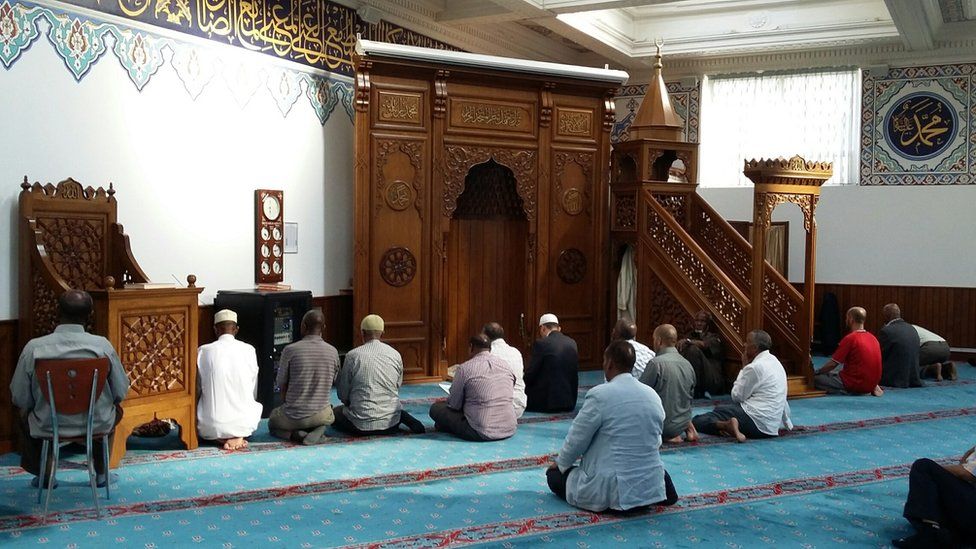Turkey coup attempt: Gulen's UK followers 'threatened'
- Published

Supporters of the man blamed by the Turkish government for last week's attempted coup have told BBC News they have been the target of threats and abuse in the UK.
Turkey's President Recep Tayyip Erdogan has accused Fethullah Gulen of being behind the failed uprising, but he denies any involvement.
Thousands of people suspected of supporting the US-based cleric have been arrested, sacked or suspended from their jobs in Turkey in the past week.
But UK-based Gulenists said that it is not just in Turkey that his followers have been singled out.
Within a few hours of the president urging people to take to the streets in protest last Friday, the Mevlana Rumi mosque in Edmonton, north London said it was targeted.
"Two people entered the mosque. They started shouting out, swearing, breaking the peace," said Seval Gokce, the mosque's executive director.
She added: "A person standing outside opened up the Turkish flag. Then an hour later, five or six more cars pulled up outside the mosque, shouting out abuse and amongst them, they were heard to say they were thinking of burning down the mosque."
'Angel of death'
Others have been targeted personally.
Ozcan Keles, a member of the mosque and chairperson of the Gulen-inspired charity Dialogue Society said he and others received threatening text messages.
"It's signed off by 'the angel of death' and then it's got a second signature which says MIT Special Forces and Operations UK," he said. "It's basically saying: I'm sending this on behalf or I am a representative of the Turkish government and Turkish intelligence services."
He said: "I'm in London. I have nothing to do with what's happening in Turkey. I condemn the coup as much as anyone condemns it."
The Gulen movement is not easy to describe.
There is no single identifiable body linking everything together. Instead followers are encouraged to form their own organisations that finance themselves.
'Arouse suspicion'
But that has led to criticisms that some organisations are too secretive about their connection to the movement.
Bill Park, a senior lecturer in defence studies at King's College, University of London, said: "They tend to be a bit coy about their links.
"The fact that they are sometimes coy means not only that they arouse suspicion because you never quite know who you're talking to but also it means you can put this label on anyone you don't trust, don't like or feel is up to something."
As the purge of suspected Gulenists continues in Turkey, it is likely some will be even less keen to identify themselves publicly with the movement.
Seval Gokce said the mosque has reported the incidents to the police and she said the community is being extra vigilant.
"For the first time since 2008, we've put a sign on the door showing our opening and closing hours," she said. "We've only shut down from 11 in the evening until four in the morning but it's the first time we're closing the doors between prayers for our own safety."
- Published22 July 2016
- Published16 July 2016
- Published21 July 2016
- Published18 July 2016